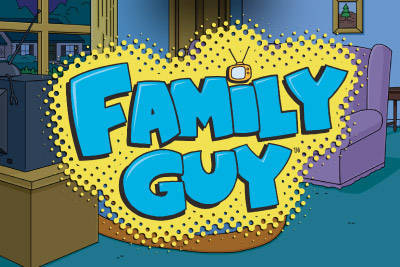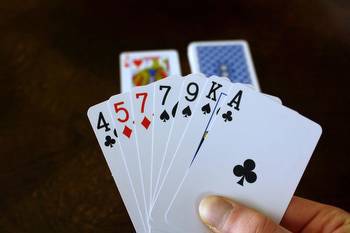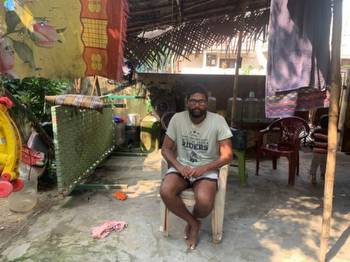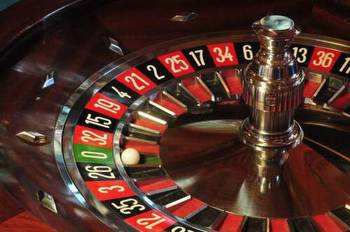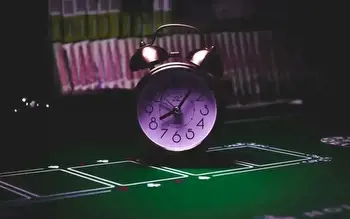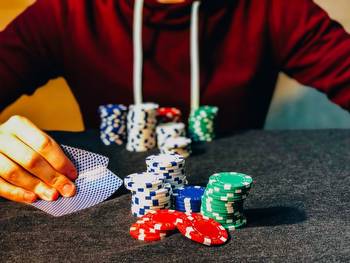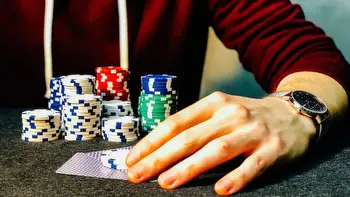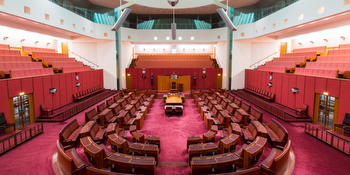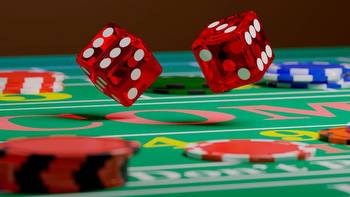Gambling addiction: When the mental health impact outweighs money problems

This article contains references to suicide/self-harm.
Paul Fung was introduced to gambling at the age of seven, watching his parents play mahjong in the underground casinos of Melbourne's Chinatown.
Later in life, as an adult, he would lose $1,000,000 of his brother's money, either at casinos or online.
Fascinated by the fast-paced nature of betting, Paul began learning the tricks of the trade and by the time he was of legal age, gambling had become an inescapable daily exercise.
"It was the highest priority, before even the general things of eating, sleeping, taking a shower," he told SBS News.
Paul Fung says gambling nearly cost him his life.
After losing seven figures – money lent to him by his brother – and gambling away around $20,000 of worker's compensation, the only option he saw was to take his own life.
"The thoughts were constant – what use am I? I've lost my family and I don't have friends. What am I living for? Those are the extremes you go to when your gambling gets to that level," Paul said.
Paul Fung was introduced to gambling as a child, when he watched his parents play mahjong.
Paul is not alone in suffering large losses from gambling. The Australian Institute of Health and Welfare said that in Australia about $25 billion was lost on legal forms of gambling in 2018-19.
A parliamentary inquiry will investigate online gambling, it was announced last week, and will also look at how effective advertising restrictions are at preventing children from being exposed to gambling products.
Lauren Levin, from Financial Counselling Australia, is pushing for reforms to prevent gambling-related suicides.
She said it’s not just the financial loss from gambling that can lead to ideation.
"It's often about the secrecy, the shame, the loss of trust, relationships blowing up, and a really deep sense of personal failure," she told SBS News.
For Paul, this shame is embedded into the Chinese culture he grew up in, which stopped him from calling out for help when he needed it most.
"You're always meant to put on a brave face and pretend everything’s great. Because it’s not just my own shame, it’s the family name. The darkness and the disgrace are shared – your whole family gets isolated from the community," he said.
Where's the help?
Grace He is a gambling counsellor specialising in treating those with an Asian background.
She said one of the most challenging parts of her job is getting people from Asian cultures to actively seek out the help they need.
"Asian people often don't understand this Western style of counselling, because in our culture, gambling is illegal and so speaking out could send you to jail," she told SBS News.
The problem with 'problem gambling'
Ms Levin said the rhetoric around gambling advertising plays a key role in developing the stigma and shame of addiction.
"We hear the terrible slogan, gamble responsibly, and that implies that if your life falls apart, and you get an addiction, or you've lost money, then you just haven't been responsible. You’ve failed. And that's what we need to change," she said.
Advocates say there needs to be greater recognition of gambling as a stressor in suicides.
Calls for policy reform
Tasmania has announced it will introduce an Australian-first mandatory pre-commitment card for pokies players, which only allows consumers to lose $100 a day or $500 a month.
It follows a slew of investigations this year that have found multiple casinos – including Perth's Crown and Sydney's Star - are unfit to hold gambling licences, in part due to their failure to minimise gambling-related harm.
Recognising the gambling stressor
Matthew McLean from Suicide Prevention Australia says there needs to be greater recognition of gambling as a stressor in suicides.
"We need to know the full scale and extent of this problem. That's important because when we have a more accurate and comprehensive picture, we know government will look to invest more funding, we know the reform agenda will have more focus," he told SBS News.
Industry experts say working towards a de-stigmatisation of being in gambling debt and seeking support can not only help understand the link between gambling and suicide ideation, it can help prevent it in the first place.
Advocates like Ms Levin, who work tirelessly to drive down the risks of gambling harm, believe there is always support for those struggling.
"Financial counsellors will go at whatever pace the person wants to go at, to work step by step to change the trajectory of the person’s life and get to a better place," she said.
For the full story, listen to
or via your favourite podcast app.
Readers seeking crisis support can contact Lifeline on 13 11 14, the Suicide Call Back Service on 1300 659 467 and Kids Helpline on 1800 55 1800 (for young people aged up to 25). More information and support for mental health is available at
and on 1300 22 4636.
supports people from culturally and linguistically diverse backgrounds.







